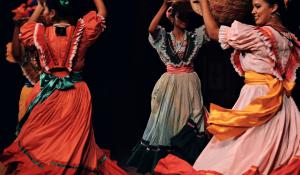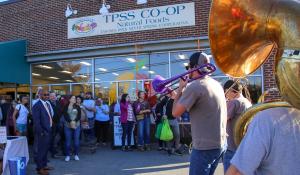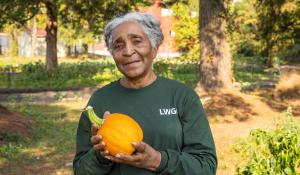
Ordering a coffee includes confronting a long list of lingo—if you’ve ever stood in front of a Starbucks menu scratching your head, you get it. Among these phrases are “fair trade” and “direct trade” which are terms to describe how a coffee bean is traded, but discerning the difference can be just as confusing as choosing between a café au lait and a latte.
What is Fair Trade?
Fair trade’s focus is alleviating farmer poverty by protecting them from predatory corporations and fluctuations in the market by setting a floor price for the commodity. Fair trade also mandates a premium to be paid on top of the floor price, which is invested into community needs, like schools or hospitals. Purchasers must pay the floor price but can, and often do, pay more. However, the price set by the fair trade organization may not necessarily equate to a true livable income.
How it really works:
Fair trade certifications help to improve supply chain conditions by ensuring producers and workers receive a minimum wage and labor laws are followed. Some fair trade certifications set standards for environmentally sustainable practices, but not all, and can vary widely between industries like cocoa, which tends to be weak when it comes to protecting forests. Not all fair trade organizations will support farmers if they have a bad year or lose their crop to natural disasters. Fair trade can also certify farmer co-ops, which exist to establish a farming community, democratize decision-making, and ensure the certification is benefiting many.
Several fair trade certifications have emerged within the last 40 years, with Fairtrade International and Fair Trade USA among the largest. Where these organizations differ depends on who they are willing to certify. Fairtrade International only certifies organized farmers, while Fair Trade USA will also certify plantations—which may have problems such as dangerous working conditions and may contribute to environmental pollution—under the rationale that more fair trade products will be available on the market.
What is Direct Trade?
Direct trade is a practice where coffee roasters purchase straight from the farmers, cutting out middlemen: buyers, sellers, and certifiers. Without the middlemen, farmers may get paid more for their beans. Direct trade roasters can also identify exactly how the relationship is impacting partner farmers and the surrounding community. In this way, direct trade is very personal. Like fair trade, direct trade is used for different types of products, like cocoa and tea.
How it Really Works:
Since direct trade partnerships happen between individual farmers and smallscale roasters, the roasters have more control over social justice and sustainability initiatives. Naturally, this means direct traders may have an outsized impact on the economic well-being of their farmer partners compared to the broader reach of fair trade certifications that impact many. But the actual economic benefit for growers is highly variable.
The close partnerships from trading directly also mean roasters have greater control over the quality of beans. Some direct trade proponents believe that this means the cup of coffee tastes better than fair trade beans—where the flavor is not considered in certification—but that is not necessarily true, as taste is subjective and high-quality beans can result from both trading methods.
Yet what direct trade truly lacks is fair trade’s strength: standardization and third-party audits. Unless direct trade roasters are fully transparent with their supply chain, customers may be paying for environmentally damaging practices and workers’ rights violations alongside that morning coffee. One roaster may compensate their farmers well and work with the growers on environmental stewardship, while another may not do either. Without a third party to oversee accountability and transparency in the supply chain, customers are relying entirely on the roaster’s word.
Which is Better?
The differences can be narrowed down to scale and impact—direct trade tends to be small, whereas fair trade has a wider reach. Farmers under a fair trade certification may have their beans sold to corporations like Starbucks or supermarkets that can purchase in bulk, while direct traders buy and sell smaller batches of beans better suited for small coffee shops. Neither approach is the end-all solution for coffee farmers. Both are evolving strategies to improve lives in coffee-producing communities.
Therefore, it’s not a question of which method is better, but how can a consumer make an educated coffee purchase?
Start by finding a cup of coffee with a flavor you like, and then do some homework. If you’re at the supermarket, look for rigorous certifications like Fairtrade International, which only certifies organized farmers and co-ops. If it’s a small shop, ask where they get their beans and if they have a fair trade certification. If it is fair trade, which certification is it? If the shop trades directly with farmers, ask about that relationship—do they describe it in detail, touching on environmental stewardship and liveable wages, or do they brush over it? And if you find the perfect coffee, ask to buy the shop’s beans so you never go without.
To find coffee companies that meet standards for social responsibility and environmental sustainability, visit GreenPages.org. Certified Green America businesses take into account human and planetary health—and also the delicious flavor of a cup of joe.
Fair Trade Leader
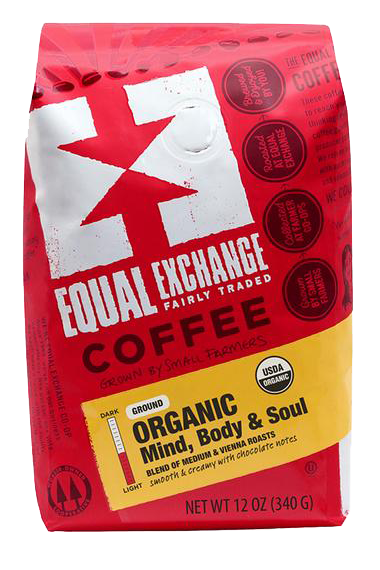
Equal Exchange{GBN}, started in 1986, has helped improve the lives of coffee farmers through certification with Fair Trade Federation as well as working with farmer coops, and served as a model for coffee companies since.
Direct Trade Leader
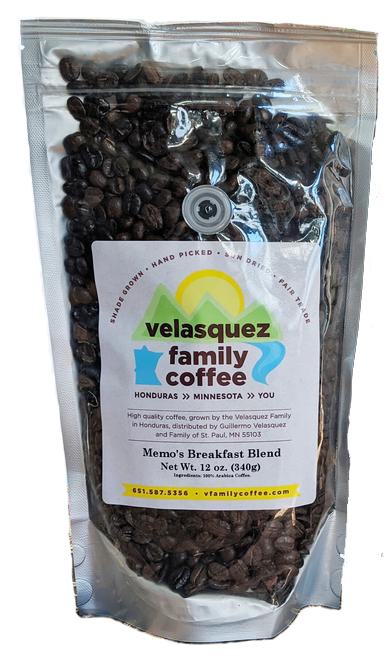
Direct trade roasters can still practice fair trade values without the added cost of certification. Velasquez Family Coffee{GBN} is one such example. The small business purchases directly from a family farm in Honduras, practices fair trade values and maintains high standards for environmental sustainability.
{GBN} signifies a Green Business Network member. Green America's directory of certified businesses are small and micro-businesses that have passed rigorous standards for social and environmental responsibility.


